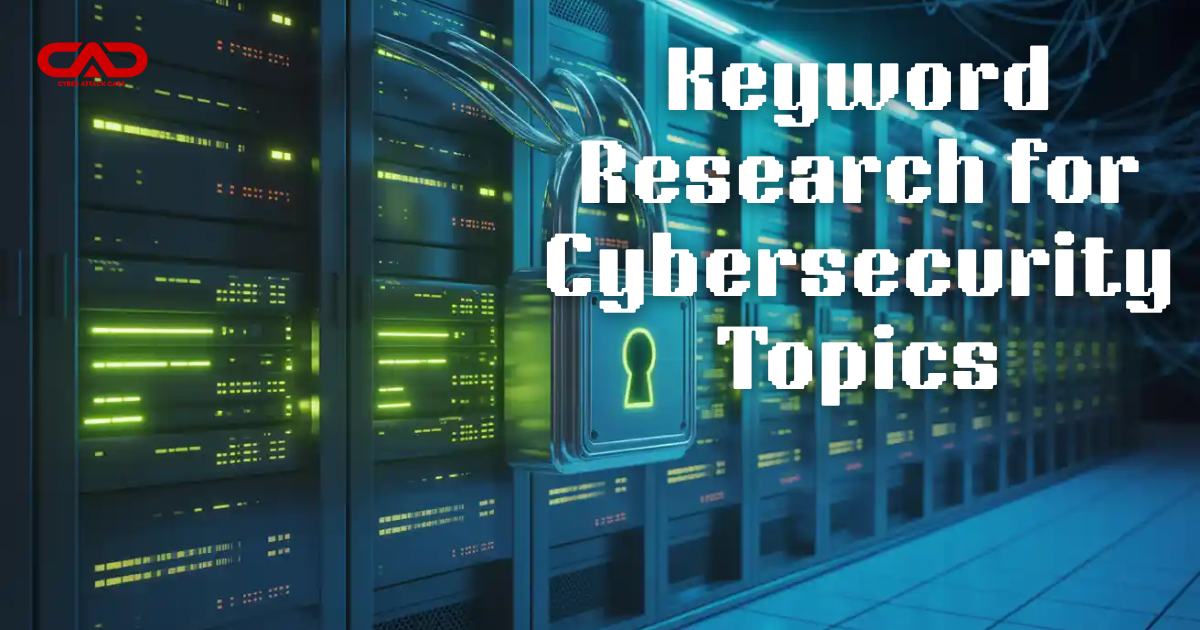Cyber security SEO is essential for cybersecurity companies looking to grow in today’s digital-first world. As online threats rise and competition increases, simply offering protection isn’t enough — you need to be visible where your potential clients are searching. That’s where cybersecurity SEO comes into play. It helps your business rank higher on Google, appear in front of the right audience, and generate high-quality leads that convert.
In this competitive landscape, cybersecurity providers must combine their technical expertise with strong digital marketing strategies. Cybersecurity SEO focuses on optimizing your website through relevant keywords, authoritative content, secure site structure, and link-building — all while aligning with industry-specific trust signals and Google’s ranking requirements. It ensures that your services appear in search queries like “penetration testing services” or “managed security providers near me.”
This guide covers everything you need to implement a winning SEO strategy in the cybersecurity industry — from keyword research and content planning to technical SEO, link outreach, and ROI tracking. Whether you’re a cybersecurity consultant, agency, or SaaS provider, understanding and applying cyber security SEO will give you a competitive edge and help position your brand as a trusted authority online.
What is Cyber Security SEO and Why Does It Matter?

Cyber security SEO is the process of optimizing your cybersecurity website and content to rank higher on search engines like Google. It involves using industry-specific keywords, producing authoritative content, and ensuring your site is secure and technically sound.
How SEO Helps Cybersecurity Brands Grow Online
- Increases visibility for competitive keywords like “penetration testing services” or “network security consultant”
- Brings in high-intent leads actively searching for cybersecurity solutions
- Establishes trust and authority with both users and search engines
Why Secure Sites Perform Better in Search Rankings
Google favors secure websites. If your site lacks HTTPS, SSL, or basic protection, it may not rank — no matter how good your content is. Security and SEO are no longer separate efforts — they go hand in hand.
Core SEO Challenges in the Cybersecurity Industry
Ranking a cybersecurity business isn’t as straightforward as other industries. Here’s why:
Long Sales Cycles & Complex Buyer Journeys
B2B cybersecurity services usually involve multiple decision-makers and longer purchase times. Your SEO content must guide users at every stage — awareness, evaluation, and decision.
Google’s E-E-A-T and YMYL Expectations
Cybersecurity falls under YMYL (Your Money, Your Life) — meaning Google expects:
- Experience in content
- Expertise from real professionals
- Authoritativeness in domain signals
- Trustworthiness through secure and verified sources
Competition with High-Authority Domains
You’re often competing with government sites (.gov), big tech companies, and major cybersecurity news platforms. A strategic SEO approach is essential to stand out.
Keyword Research for Cybersecurity Topics
Effective keyword research lays the foundation for SEO success. Focus on:

Targeting High-Intent Keywords
Look for terms that show buyer intent like:
- “best MDR provider”
- “cybersecurity services for small businesses”
- “PCI compliance consulting”
Using Long-Tail Keywords for Niche Reach
Example:
- “how to secure a SaaS product from cyber threats”
- “affordable penetration testing for startups”
Tools to Find Cybersecurity-Related Keywords
- SEMRush
- Ahrefs
- Google Keyword Planner
- Ubersuggest
Building Authoritative, Expert-Led Cybersecurity Content
Content is where you build topical authority — a key SEO signal for Google.
Creating Topical Authority with Blogs and Guides
Publish in-depth content like:
- “How to Prevent Ransomware Attacks in 2025”
- “Top Cybersecurity Tools for Remote Teams”
Addressing Security Questions & User Pain Points
Use forums, Reddit, and “People Also Ask” to gather real questions and answer them clearly.
Optimizing for Featured Snippets and FAQ
Use bullet points, direct answers, and structured data to win featured snippets.
Technical SEO + Website Security = Search Engine Trust
Technical SEO ensures search engines can access, crawl, and trust your website.
HTTPS, SSL & Site Security Best Practices
Google gives a clear ranking boost to sites with:
- Valid SSL certificates
- HTTPS encryption
- Secure servers
Firewalls, CDNs, and Page Speed
Faster sites with content delivery networks (CDNs) and Web Application Firewalls (WAFs) not only load quickly but also resist attacks.
How Google Rewards Secure and Fast Sites
- Better crawl efficiency
- Lower bounce rates
- Higher Core Web Vitals scores
Link Building Strategies for Cybersecurity Sites
Backlinks are a major SEO factor, especially in competitive spaces like cybersecurity.
Earning Backlinks from Trusted Tech Sites
Target:
- Tech blogs
- Cybersecurity forums
- B2B software review sites
Digital PR and Outreach to Cybersecurity Channels
Pitch expert commentary, original research, or security predictions to earn mentions.
Avoiding Blackhat SEO and Toxic Links
Never buy links or use automated backlinking tools. It risks penalties and lost trust.
Local SEO for Cybersecurity Consultants & Agencies
If you’re a local provider, Local SEO is critical for clients in your region.
Optimizing Google Business Profile
Add:
- Correct NAP (Name, Address, Phone)
- Services
- Reviews
- Security certifications
Using Location-Specific Keywords
Example: “Cybersecurity firm in New York” or “IT security consultant Karachi”
Getting Reviews & Citations
Ask satisfied clients to leave Google and LinkedIn reviews to boost local trust.
How to Measure the ROI of Cybersecurity SEO
Without measuring your SEO performance, you’ll never know what’s working.
Tracking Keyword Rankings & Organic Traffic
Use tools like:
- Google Search Console
- Ahrefs
- SERanking
Lead Generation and Conversions
Track:
- Contact form submissions
- Newsletter signups
- Scheduled consultations
Tools for SEO Analytics in Cybersecurity
- Google Analytics 4
- HubSpot
- Leadfeeder (to identify companies visiting your site)
Hiring Cyber Security SEO Services: What to Look For
Thinking of hiring an agency or consultant? Here’s what to check:
Experience with Security Brands or B2B Tech
They should understand:
- Compliance (HIPAA, PCI-DSS)
- Security products
- IT buyer personas
Proven SEO Case Studies or Results
Ask for:
- Ranking improvements
- Lead growth examples
- Content performance metrics
Ethical SEO Practices & Transparency
Make sure they:
- Don’t use blackhat tactics
- Provide regular reports
- Align with your brand tone and values
FAQs About Cyber Security SEO
What is SEO in cybersecurity?
SEO in cybersecurity refers to optimizing a cybersecurity company’s online presence to rank higher in search engine results. Cyber security SEO helps these firms reach potential clients by improving website visibility, creating expert-led content, and ensuring technical site security — all of which align with search engine ranking factors.
What are the 4 types of SEO?
The four main types of SEO are:
- On-Page SEO – Optimizing content, keywords, and metadata.
- Off-Page SEO – Building backlinks and external authority.
- Technical SEO – Improving site speed, security, and structure.
- Local SEO – Targeting location-based searches, especially for cybersecurity agencies serving specific regions.
All four types are crucial in a strong cyber security SEO strategy.
What does SEO mean?
SEO stands for Search Engine Optimization. It’s the process of improving your website so it ranks higher in search engines like Google. For cybersecurity firms, it means making your services easier to find online through smart keywords, quality content, and secure, fast-loading websites.
What does SEO stand for in security?
In the context of security, SEO still means Search Engine Optimization, but it specifically focuses on how cybersecurity-related businesses and websites can increase their visibility online. Cyber security SEO ensures your secure services are discoverable by the right audience — especially in a trust-driven, sensitive industry.
Is SEO still important if I run paid ads?
Yes. SEO builds long-term visibility and trust without recurring ad costs.
How often should I publish content?
Aim for 1-2 high-quality blog posts per month focusing on trending cyber topics.
Final Thoughts: Secure SEO is the Future of Cyber Branding
In the cybersecurity space, SEO isn’t optional — it’s mission-critical. A secure, optimized website builds trust with both Google and your visitors. By investing in cyber security SEO, you position your brand as a credible, findable, and authoritative solution in a noisy digital world.
Whether you’re an MSSP, SaaS provider, or cybersecurity consultant — SEO can drive the visibility, trust, and qualified traffic you need to grow.
How long does it take to rank a cybersecurity site?
Typically, 3 to 6 months depending on competition, domain authority, and content quality.
Final Thoughts: Secure SEO is the Future of Cyber Branding
Cyber security SEO In the modern digital landscape, cybersecurity firms face an increasingly complex challenge — not only defending clients from threats but also standing out in a saturated online market. This is exactly where cyber security SEO becomes a game-changer. It’s more than just optimizing for Google — it’s about aligning your technical security expertise with strategic digital visibility.
Throughout this guide, we’ve seen how critical it is to have a strong, secure online presence. From identifying the right keywords to publishing expert-led content, optimizing technical performance, earning trustworthy backlinks, and implementing local SEO — every element contributes to how your cybersecurity business is discovered and trusted online. You’re not just fighting cyber threats anymore — you’re also competing for attention, relevance, and authority.
Security and SEO are now inseparable. Google rewards sites that are fast, protected, and offer high-quality, authoritative information — all core principles of any reputable cybersecurity provider. If your website isn’t ranking well or isn’t converting traffic into leads, the missing piece could very well be a proper cyber security SEO strategy.
Whether you’re an MSSP, SaaS provider, consultant, or agency — your long-term growth depends on more than just your technical offering. It depends on how well you position and present it online. Investing in cyber security SEO today means building digital trust, attracting high-intent clients, and staying ahead in both search results and industry perception.
The future of cybersecurity marketing belongs to the secure, the strategic, and the visible. Make sure your brand checks all three boxes — starting now.